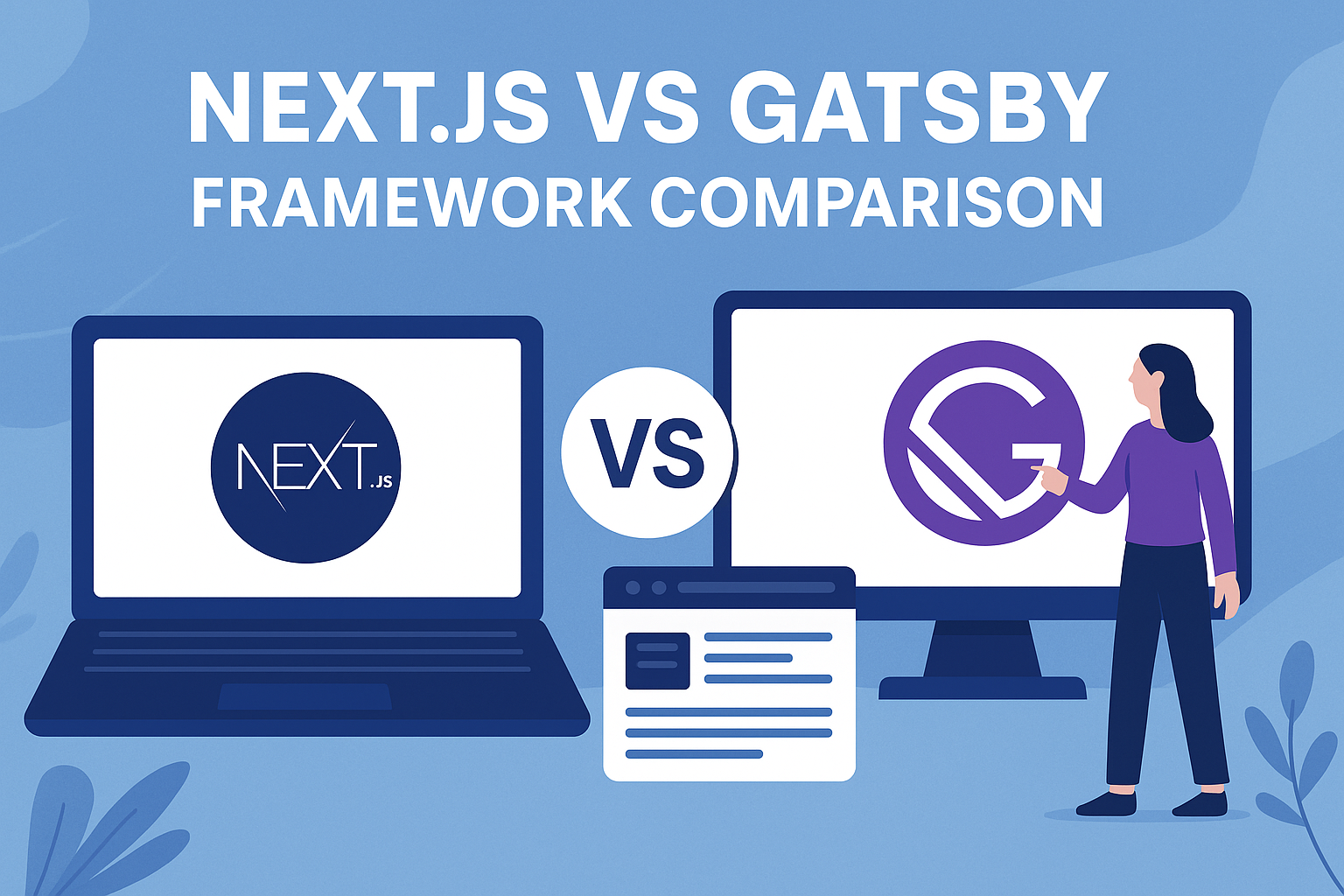The battle between Next.js and Gatsby has long shaped the React ecosystem. As of 2025, both frameworks have evolved significantly, but each still serves distinct needs. Whether you’re building static marketing sites, dynamic web apps, or e-commerce platforms, this guide will help you choose the right tool for the job.
Overview
Next.js (by Vercel)
- Type: Full-stack React framework
- Rendering: SSR, ISR, SSG, CSR, edge rendering
- Best for: Versatile applications, dynamic content, serverless
Gatsby (by Netlify)
- Type: Static site generator with React
- Rendering: Primarily SSG with DSG and SSR support
- Best for: Content-heavy websites, blogs, documentation, marketing
Performance Comparison
| Feature | Next.js | Gatsby |
| Initial Build Time | Moderate | Longer for large sites |
| Incremental Build Time | Fast (ISR) | Fast (DSG) |
| Page Load Speed | Fast | Very Fast |
| Dynamic Content Handling | Excellent | Limited |
Insight: Next.js is ideal for dynamic content; Gatsby shines with static content performance.
Real-World Code Examples
Next.js: SSR with Dynamic Routes
// pages/products/[id].js
import { useRouter } from 'next/router';
export async function getServerSideProps(context) {
const res = await fetch(`https://api.example.com/products/${context.params.id}`);
const product = await res.json();
return { props: { product } };
}
export default function ProductPage({ product }) {
return <div>{product.name}</div>;
}Gatsby: Static Site Generation with GraphQL
// gatsby-node.js
exports.createPages = async ({ graphql, actions }) => {
const { createPage } = actions;
const result = await graphql(`{
allProduct { nodes { id } }
}`);
result.data.allProduct.nodes.forEach((node) => {
createPage({
path: `/products/${node.id}`,
component: require.resolve('./src/templates/product.js'),
context: { id: node.id },
});
});
};SEO Optimization Strategies
Next.js
- Use next/head for dynamic meta tags
- Structured data with JSON-LD
- Sitemap generation with next-sitemap
Gatsby
- Static meta tags using gatsby-plugin-react-helmet
- Structured data plugins
- gatsby-plugin-sitemap for automated sitemap generation
Insight: Next.js offers more flexibility for dynamic SEO; Gatsby excels with predictable content.
Developer Experience (DX)
| Feature | Next.js | Gatsby |
| Setup Complexity | Moderate | Moderate |
| Data Fetching Flexibility | High (REST, GraphQL, etc.) | Moderate (GraphQL-centric) |
| Plugin Ecosystem | Growing | Extensive |
| Learning Curve | Steeper | Gentler |
| Community Support | Strong | Strong |
Insight: Next.js is great for complex applications. Gatsby suits content creators and marketers.
Final Thoughts
In 2025, Next.js and Gatsby have clearly defined roles:
- Choose Next.js for flexibility, dynamic data, and hybrid rendering.
- Choose Gatsby for lightning-fast static sites, content-focused platforms, and built-in performance.


